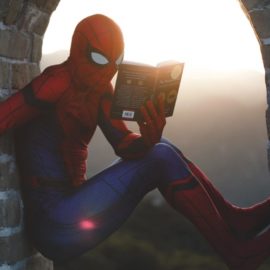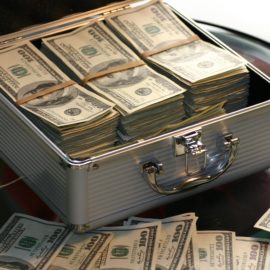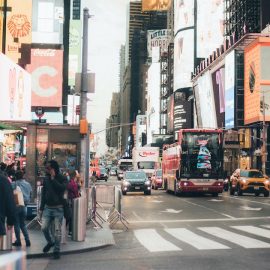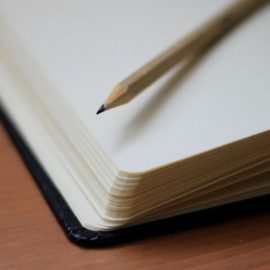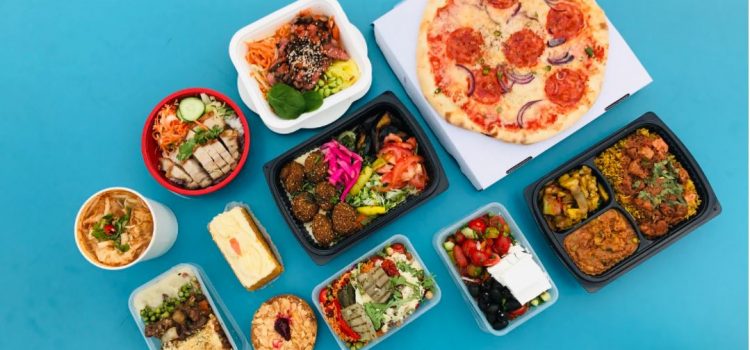
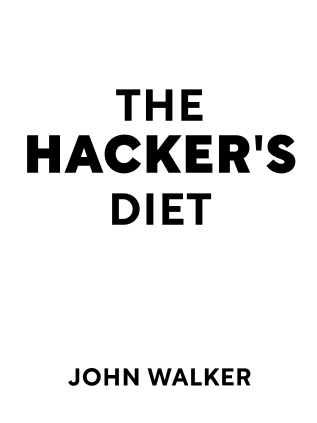
This article is an excerpt from the Shortform book guide to "The Hacker's Diet" by John Walker. Shortform has the world's best summaries and analyses of books you should be reading.
Like this article? Sign up for a free trial here .
Do you plan your meals ahead? How can the simple act of planning your meals in advance help you lose weight?
John Walker, the author of The Hacker’s Diet, claims that you can lose weight by eating the exact same foods you already eat, just in smaller portion sizes. Walker says that the easiest way to ensure you’re not overeating is to carefully plan your portions and to consider the happiness/calorie ratio of foods.
Here’s how planning your meals in advance can help you lose weight and keep it off.
Planning Meals
Pre-planning meals — how much you eat AND when — gives you a reliable daily calorie intake. If you eat only what you plan to, then you’re guaranteed to achieve your goal. (Again, simply, not necessarily easy).
You would never invest in a company that sets no budgets and whose strategy is “spend whatever we feel like day to day, and hope it’ll work out in the long run.” Not only would this be more likely to fail than methodical planning, there’d be no way to measure actual performance against goals to figure out the problems. “Winging it” in relation to your eating target is the same.
Rigid planning of meals, and adherence to the plan, is the most important strategy in losing weight. You will lose some spontaneity of your eating, but you will be rewarded by weight loss.
Planning meals has these benefits:
- It helps you avoid the in-the-moment temptation to get a plate of seconds.
- It avoids reliance on your internal eat watch, which we already know is broken — without constraints, you will eat far beyond what your body needs for maintenance.
- It avoids unpredictable meals, which leads to unpredictable calorie consumption. If you go to lunch without any idea of how much you’ll eat at dinner, how do you know how much to eat at lunch?
Pointers on Planning Meals
What you eat doesn’t matter as much as how much you eat. Calories per day is by far the most important number as far as weight is concerned. What doesn’t matter as much: the composition of what you eat (such as fats vs carbs vs protein), and when you eat it.
So in general, keep your current eating schedule. You can eat 3 meals a day, or 8 small meals. But keep a regular schedule.
- As you gain experience, you may notice certain periods of the day when you’re hungrier. Then adjust your eating schedule to ease your hunger during these periods.
- Keeping a regular schedule helps you deal with hunger. Hunger is easier to handle when you know that in exactly 1 hour and 52 minutes, you’ll be able to quench your hunger.
- The author advises one exception, which is to avoid eating a large meal and immediately going to sleep. This tends to store the excess nighttime calories as fat (when you’re metabolically inactive) and makes you wake up hungry, compared to eating more than a few hours before sleeping.
Keep your diet composition the same as your normal diet. Eat the same things—just change the amounts to keep under the calorie limit.
- There’s no need to suffer by restricting yourself to foods you hate. You can still eat hamburgers and fried chicken — the critical thing is to restrict the amount you eat.
- After planning your diet, evaluate a pie chart of where the calories are going. Consider the happiness / calorie ratio of foods. You may find that certain calorically dense foods are less enjoyable than they’re worth, and you can spend those calories on other more enjoyable foods. For instance, 100 calories of peanuts is shockingly little — you may be happier spending that eating an apple.
Be very aware of serving sizes. It’s easy to overeat. The safest option is to measure out exactly what you planned — 100g of chicken breast, 1 tbsp of mayonnaise, 2 oz. of potato chips. Otherwise, it is very easy to eat over your allotment. The first time you measure calorically dense foods like cookies, nuts, and meat, you will be shocked by how many calories are contained in tiny amounts of food.
An easy way out: eat only pre-prepared foods, like microwavable meals, meal kits, or liquid meals like Slimfast. Not only does this make it easier to restrict calories, it also lets you eat on schedule without time-consuming prep.
The author recommends a few “secret weapons” in your diet that make hunger easier to deal with:
- Caffeine — it suppresses appetite, makes you feel more energetic, and adds few calories (if consumed in the form of coffee and zero-calorie soft drinks).
- Bouillon — hot, rich, salty — all these counteracting hunger.
- Liquids — filling your stomach helps stave off hunger.
- Pickles — a medium size pickle is just 7 calories. These are basically crunch water.
- Low-calorie seasonings — pepper, mustard, and spices.
While measuring and scheduling all your food is laborious at first, quickly you will develop an intuition for how many calories a certain amount of food contains.
Eating out adds variability to your planning since you can’t control the preparation of food.
- If the restaurant offers nutritional info, look it up beforehand and plan out your meal. Stick to the meal you plan.
- If the restaurant doesn’t have nutritional info, then restrict your eating. Fill up your plate to the amount you’d eat at home, then eat no further. Do not take seconds. Do not finish a dish to avoid taking it home or wasting it.

———End of Preview———
Like what you just read? Read the rest of the world's best book summary and analysis of John Walker's "The Hacker's Diet" at Shortform .
Here's what you'll find in our full The Hacker's Diet summary :
- An engineer’s approach to weight loss
- Why losing weight is so hard even though it's so simple
- What you have to do to maintain your ideal weight for the rest of your life

